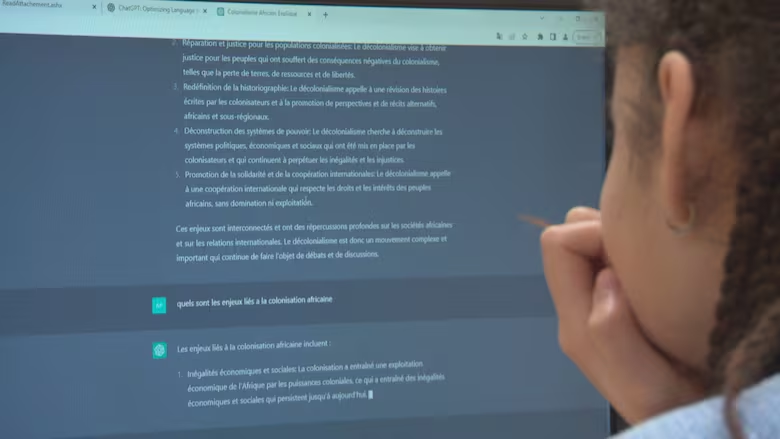Latest News
Latest Ads
-
Jasmine Jewel
Call
-
Omidan group
Call
-
Amir Madanpour
Call
-
Dimo studio
Call
-
Yorkacademy
Call
-
Maryambagheri
Call
-
Shishlix Restaurant
Call

Canadian teachers yearn for guidance, instruction as AI infiltrates classrooms
Canadian teachers want guidance, training on using AI in the classroom
Google, Microsoft, and Antropik partner with teachers’ unions to train 400,000 teachers over 5 years
Despite the summer break, Ontario high school teachers Jamie Mitchell and Tamara Phillips know that their main conversations with colleagues this fall will revolve around AI and how it can be used in education.
Mitchell, who teaches math, and Phillips, who teaches English, are both instructional leaders, meaning they help and guide their colleagues in their professional development.
“There’s no doubt that teachers are very much looking for guidance on how to use AI in the classroom,” Mitchell says.
Since the emergence of OpenAI’s ChatGPT chatbot in student assignments nearly two years ago, the increased presence of AI in research, office work, and education has shifted the conversation from “Is AI allowed in the classroom?” to “How should it be used properly?”
“The zero-sum thinking about whether AI is good or bad should be replaced by learning about the tools available,” says Phillips.
Teachers Struggling Alone
Earlier this summer, Microsoft, OpenAI, and Anthropic announced they were investing $23 million to launch the National Academy for AI Education. The initiative, designed in partnership with the second-largest teachers’ union in the United States, the American Federation of Teachers, aims to train 400,000 teachers over the next five years.
But in Canada, according to the Canadian Federation of Teachers, teachers have no similar national program.
“Teachers are really struggling with AI, and they’re often struggling alone because there’s no clear policy or framework,” Heidi Yeatman, the federation’s former president, told CBC.
Provinces like Alberta and Quebec have provided guidance on the use of AI in schools, but they’ve focused more on drawing the line between acceptable and unacceptable use. Yeatman says the guidance is incomplete, fragmented, and lacks real education about the potential and risks of AI.
Provinces respond to CBC on support for teachers
CBC reporters asked provincial and territorial governments about the level of support they have for teachers around AI, and received mixed responses.
British Columbia, for example, said it provided general guidance, but each district has developed its own policies. Newfoundland and Labrador also announced that about 2,000 school staff have participated in AI training programs, with more courses planned.
Concerns about the future role of teachers
Another major concern for teachers is that their role will be diminished in an era where AI has become part of education.
“The question is, can AI replace teachers? I’m sorry to say it, but it seems like we’re moving in that direction,” says Yeatman.
Jonathan Woodworth, a professor of education at Mount St. Vincent University in Halifax, believes this concern could change teachers’ perceptions of their role and professional identity.
Source
Suggested Content
Latest Blog
Login first to rate.
Express your opinion
Login first to submit a comment.
No comments yet.


































